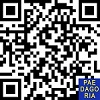KARAKTERISTIK KEPEMIMPINAN SEKOLAHAN DI SRAGEN
Abstract
Abstrak: penelitian ini membahas karakteristik efektivitas kepemimpinan sekolah. pendekatan penelitian adalah eksplorasi kualitatif observasi dan critical review di sragen. hasil penelitian menunjukkan bahwa ada enam karakteristik kepemimpinan sekolah yang efektif: membentuk masa depan, mengamankan pertanggungjawaban, pembelajaran dan pengajaran memimpin, mengelola organisasi, pimpinan mengembangkan diri dan bekerja dengan orang lain, memperkuat komunitassehingga dibutuhkan pemimpin yang mengarah pada upaya untuk membangun sekolah yang efektif dengan mengatur: pengembangan sumber daya manusia, partisipasi masyarakat, lingkungan sekolah melalui penyediaan fasilitas dan infrastruktur pendidikan. Juga pengembangan profesional guru, prestasi siswa dan kinerja guru, pemantauan kemajuan siswa, pembiayaan pendidikan yang adil, dan komitmen pemerintah daerah untuk memberikan apresiasi kepada tenaga kependidikan. Itu Refleksi pada praktik-praktik inti kepemimpinan sekolah yang sukses menunjukkan bahwa gaya dan teknik kepemimpinan pada dasarnya adalah manifestasi dari praktik penentuan arah yang mampu memicu dua praktik inti lainnya, yaitu mengembangkan orang dan mendesain ulang organisasi.
Abstract: This study discusses the characteristics of the effectiveness of school leadership. The research approach is qualitative exploration observation and critical review in Sragen. The results showed that there are six characteristics of effective school leadership: shaping the future, securing accountability, learning and teaching leading, managing organizations, leading to developing and working with others, strengthening the community so that leaders are needed who lead to efforts to build effective schools with regulates: human resource development, community participation, school environment through the provision of educational facilities and infrastructure. Also teacher professional development, student achievement and teacher performance, monitoring student progress, equitable education funding, and the commitment of local governments to give appreciation to education staff. The reflection on the core practices of successful school leadership shows that leadership styles and techniques are basically manifestations of directing practices that are capable of triggering two other core practices, namely developing people and redesigning organizations.Keywords
Full Text:
Download [PDF]References
A. Mappaenre. (2014). Kepemimpinan Visioner Kepala Sekolah, Kepemimpinan Diri Guru Dan Sekolah Efektif [Leadership Visionary Principal, Teacher Leadership And Effective School]. JIANA (Jurnal Ilmu Administrasi Negara), 12, 217–228.
A. Salabi. (2016). Analisis Proses Internal Keefektifan Organisasi Madrasah Aliyah Negeri di Provinsi Kalimantan Selatan [Internal Process Analysis of the Effectiveness of Organization of Public Madrasah Aliyah in South Kalimantan Province]. Jurnal Kependidikan, 44, 117–126.
A.J. MacNeil, D. L. Prater, S. B. (2016). The effects of school culture and climate on student achievement. International Journal of Leadership in Education, 12, 73–84.
Arisa, N., Joko, S., & Uchyani, F. R. (2018). RJOAS, 9(81), September 2018. Russian Journal of Agricultural and Socio-Economic Sciences, 9(September), 37–51. https://doi.org/https://doi.org/10.18551/rjoas.2018 - 09.03
Christopher Day and Pamela Sammons. (2016). Successful school leadership. Education Development Trust.
D.L. Anderson, A. P. G. (2016). Improving student wellbeing: having a say at school. School Effectiveness and School Improvement, 27, 348–366.
Hao, M. J., & Yazdanifard, R. (2015). How Effective Leadership can Facilitate Change. Global Journal of Management and Business Research: A Administration and Management, 15(9), 0–6.
I. Hanafi, M. M. (2015). Analisis implementasi kebijakan Pendidikan: peran Komite Sekolah pada Menengah Kejuruan [Analysis of the Implementation of Education Policy: The Role of School Committees In Vocational Secondary Schools]. Jurnal Cakrawala Pendidikan, XXXIV, 58–66.
Li, H., Sajjad, N., Wang, Q., Ali, A. M., Khaqan, Z., & Amina, S. (2019). Influence of transformational leadership on employees’ innovative work behavior in sustainable organizations: Test of mediation and moderation processes. Sustainability (Switzerland), 11(6), 1–21. https://doi.org/10.3390/su11061594
M. Muspawi. (2014). Pengembangan Model Kepemimpinan Kepala Sekolah Yang Berorientasi Pada Kinerja Sekolah Efektif (Studi Kepemimpinan Kepala SD Number 02/VII Pasar Sarolangun Kabupaten Sarolangun) [Development of Leadership Model Leadership Oriented On Effective School Perfo. Jurnal Penelitian Universitas Jambi: Seri Humaniora, 16, 19–22.
N. Alfirevic, J. Burusic, J. P. & R. R. (2016). School Effectivitas dan Educational Management: Towards a South-Eastern Europe Research and Public Policy Agenda. Springer.
Nurkolis, N., & Sulisworo, D. (2018). School Effectiveness Policy in the Context of Education Decentralization. Journal of Education and Learning (EduLearn), 12(2), 244. https://doi.org/10.11591/edulearn.v12i2.7728
R. Botha, T. M. (2012). Exploring Practices Determining School Effectiveness: A Case Study in Selected South African Secondary Schools. International Journal of Education Sciences, 4(2), 79–90.
S. Waluyanti, dan S. S. (2016). Analisis Kebutuhan Materi Pengembangan Profesionalisme Berkelanjutan Guru Smk Teknik Audio Video [Needs Analysis Materials Continuous Professionalism Development of Teachers Smk Audio Video Techniques]. Jurnal Kependidikan, 44, 146–157.
W.K. Hoy, C. G. M. (2014). Administrasi Pendidikan: Teori, Riset, dan Praktik [Educational Administration: Theory, Research, dan Practices]. Pustaka Pelajar.
Widjiningsih, Sugiyono, A. G. (2014). Efektivitas Dan Efisiensi Pembelajaran Teknik Draping Berbantuan Video Di Perguruan Tinggi [Effectiveness and Learning Efficiency Video-assisted Drafting Techniques In Higher Education]. Jurnal Cakrawala Pendidikan, XXXIII, 62–70.
DOI: https://doi.org/10.31764/paedagoria.v11i3.2421
Refbacks
- There are currently no refbacks.
Copyright (c) 2020 Universitas Muhammadiyah Mataram

This work is licensed under a Creative Commons Attribution-ShareAlike 4.0 International License.
Paedagoria : Jurnal Kajian, Penelitian dan Pengembangan Kependidikan
Fakultas Keguruan & Ilmu Pendidikan | Universitas Muhammadiyah Mataram.
_______________________________________________
 | Paedagoria : Jurnal Kajian, Penelitian dan Pengembangan Kependidikan |
______________________________________________
CURRENT INDEXING:
EDITORIAL OFFICE:


















